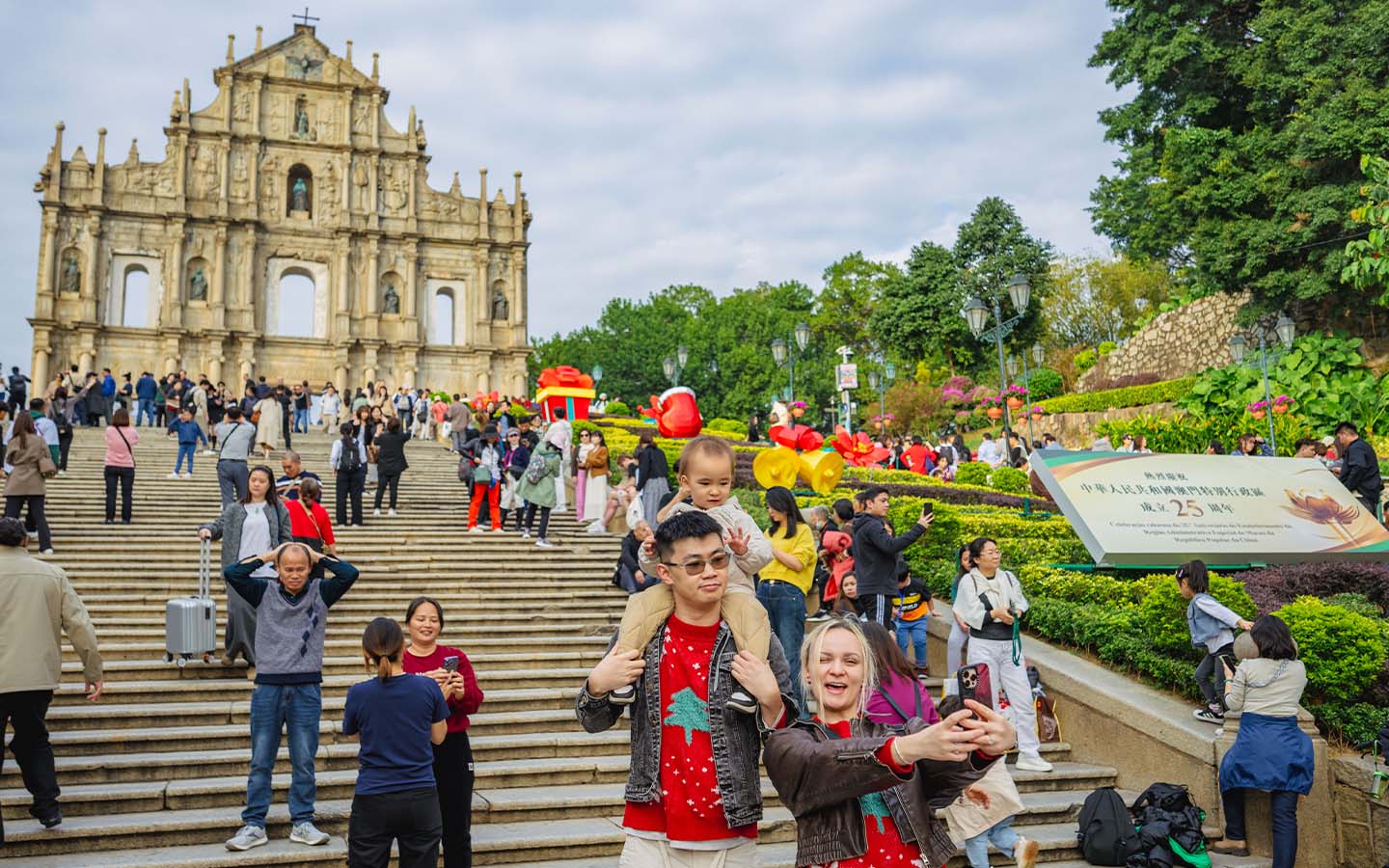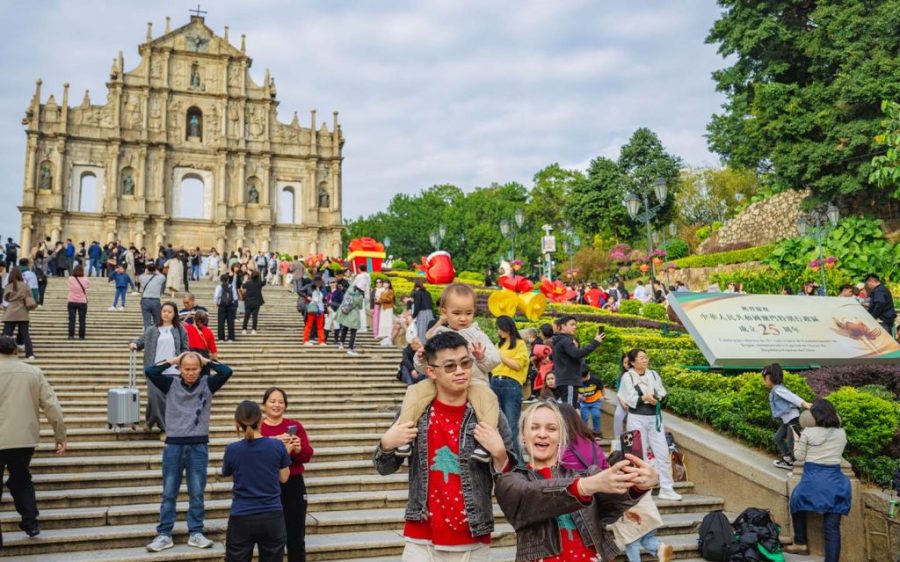Macao is doubling down on its commitment to attract more overseas tourists, the Macao Government Tourism Office (MGTO) announced in a statement yesterday.
Although the tourism office is focusing on Southeast Asia and Northeast Asia, it also hopes to “reignite” tourism from Europe, the US and India, and “explore” the potential of the Middle East in 2025.
Mainland China – Macao’s biggest source of tourists – has not been left out either. The MGTO has been building the market base in the 10 mainland cities that were incorporated into the Individual Travel scheme through business discussions, tours and enhanced tourism products.
To attract these visitors, the tourism authorities plan to leverage Macao’s status as a Culture City of East Asia 2025 and its staging of the National Games in November. The MGTO also intends to “organise promotional events and engage in major travel fairs.”
[See more: Tourist arrivals grew by nearly 24 percent last year, but length of stay fell]
As part of its “going global and bringing in” marketing strategy, the MGTO is promoting the SAR on 28 social media accounts, including WeChat, Facebook, Xiaohongshu and Instagram. Collectively, these accounts have more than 9 million followers, a jump of 45 percent from 2023.
The tourism office has also sought to widen Macao’s global reputation by collaborating with media outlets such as the BBC, Bloomberg, CNN and Discovery Channel to produce content that highlights the city’s heritage sites, activities and cuisine.
The Macao authorities have also organised offline events like “Macao Week” to promote the SAR. That roadshow has toured 10 cities in the mainland since its inception in 2020, while other promotional events in Japan, South Korea and Thailand attracted more than 1.27 million participants last year.
Macao is expected to welcome around 38 to 39 million visitors this year, a figure that is almost on par with pre-pandemic numbers from 2019. Despite the increase, one local economist argues that it may not result in greater visitor spending, as travellers’ consumption habits have changed and relatively few stay in the city overnight.






